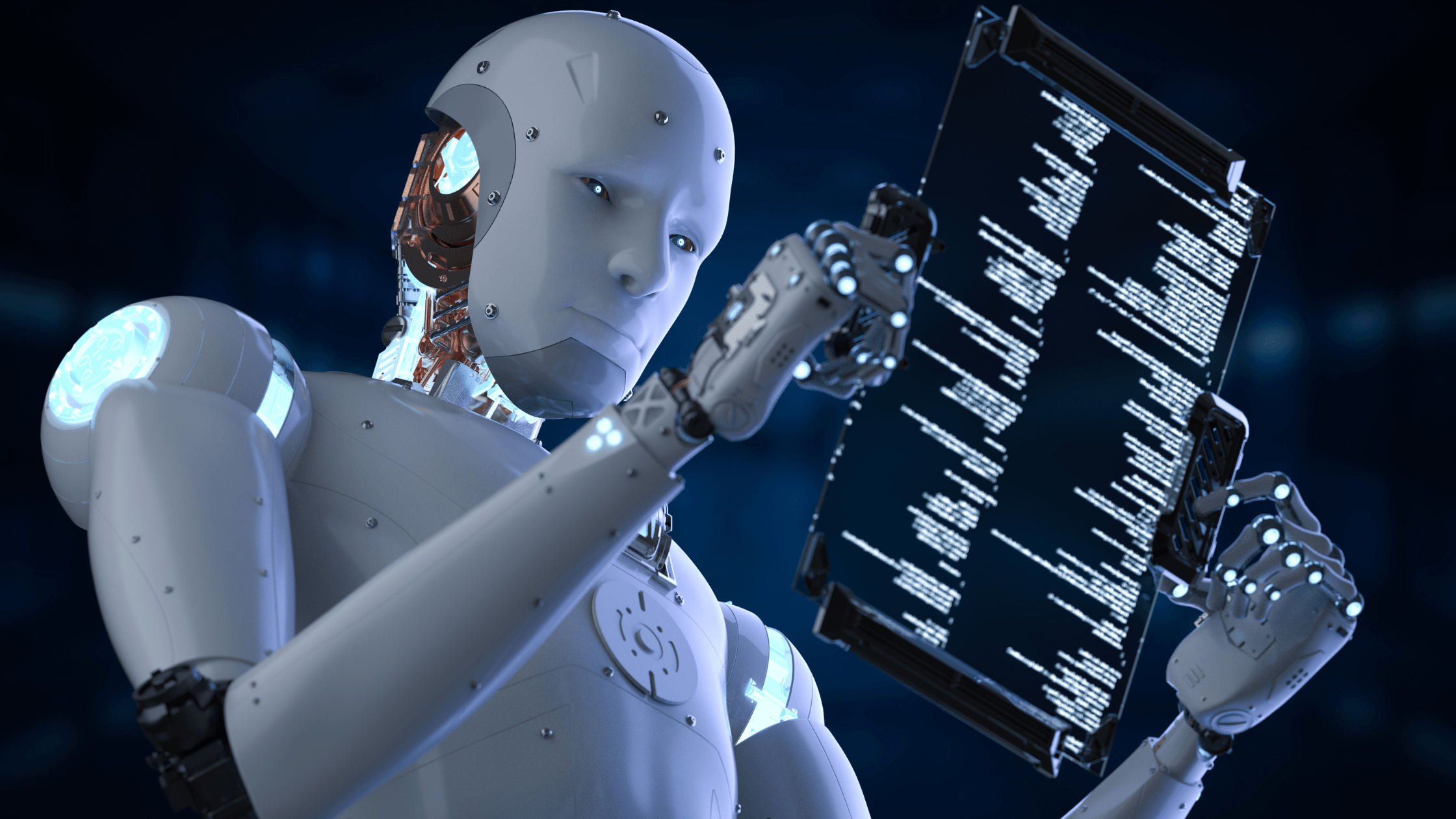Perhaps one of the biggest plots for sci-fi movies over the last few decades has been around how AI will take over the world. Our fear of Artificial Intelligence is the 21st Century’s take on witchcraft. But no, unfortunately we won’t be seeing Will Smith burn any robots at the stake any time soon.
It’s both exciting and terrifying how the rate of technological growth is speeding up exponentially. Who’d have thought the first iPhone was created 15 years ago? Since then, Alexa’s, AirPods, and Apples (not the fruit kind) are seeming to dominate the life of the average consumer. The real question for recruitment enthusiasts is, “what is the process for using AI in recruitment”?
For academia’s sake, Artificial intelligence (AI) refers to the simulation of human intelligence in machines that are programmed to think and learn like humans. AI systems can perform tasks such as recognizing speech, understanding natural language, making decisions, and playing games, often with human-like or superhuman performance. There are different types of AI, including rule-based systems, machine learning, and deep learning.
AI recruiting is the process of using artificial intelligence to automate time consuming, repetitive tasks while offering personalization and data insights throughout the hiring process. There are plenty of ways to integrate AI with the recruitment process, and there are also exciting prospects in the future of using AI in recruitment.
88% of companies globally already use AI in some way for HR, according to SHRM. On top of this, around 95% of HR professionals think AI could help with the application process for candidates, while 29% of these also believe that AI will replace them in the hiring process (not if Will Smith can help it).
Our previous blog post on the future of recruitment can give some great insights for readers looking to understand the different ways recruitment may change over the next 50 years.
Before my ‘I, Robot’ jokes bore you to death, let’s dive into some examples of how AI is already being used in recruitment, before summarising both the benefits and challenges of integrating the two.
Examples of AI in Recruitment
- Sourcing High Quality Candidates
AI in recruitment can do a great job of handling the tedious and time-consuming task of finding candidates from a large pool. Not only this, but it helps recruiters find candidates who may not have even applied for the available job. 52% of talent acquisition leaders say the hardest part of recruitment is screening candidates from a large pool – so it’s clear that this type of AI certainly fills a demand!
Loxo AI is an example AI-powered sourcing software, where you can tell the AI what you’re looking for in the perfect candidate by filling out a form. It then pulls together around 50 candidates who may be ideal for your available role based on your criteria.
- Online Interviewing
Since COVID-19, online interviews are becoming more and more common among remote workers in the recruitment industry. AI is certainly helping to facilitate this virtual phenomenon, where AI interviewing tools can assess an interviewee’s performance better.
The software used can analyse their speech patterns, body language, and facial expressions to tell you more about their behaviour during the interview. These results can help determine whether the candidate can make a good fit for the company.
- Chatbots
Used exhaustively everywhere, chatbots are probably the most well-known type of AI which is becoming the universally accepted norm for any customer service recipient. However, this is now being used also by recruiters, where they chatbots can allow organisations to provide access to interactive chats that answer frequently asked questions or provide feedback on the ongoing recruitment process.
Candidates are able to receive consistent information and updates, which not only boosts engagement, but also improves their understanding of the company they’ll be joining.
On top of this, chatbots can help boost innovation and creativity of recruiters, where ChatGPT has hit the world by storm. This well-known AI allows people to ask questions and converse with AI for endless uses. An example of what you can do could be asking it to write a job advertisement, or you could ask for different strategies to find new candidates.
Benefits of Recruitment AI
Here are some of the benefits of using AI for recruiting:
- More efficient than humans. AI-powered recruitment tools can go through CVs much faster than a human, and then can pick out the CVs which are most relevant to the job role. AI can also schedule interviews quicker than a human. This allows for the recruiter to focus more on other tasks.
- Removes potential bias. As a human, the recruiter is always biased even if they think they’re not. For example, recruiter A may hire a candidate which Recruiter B may not even invite for a job interview. A lot of recruitment is done based on feelings – both conscious and unconscious. AI can bring an unbiased view to the recruitment process, where it recognises candidates based on their skillset.
- Improves quality of hire. AI can help give you tips for writing a job ad, or even write the advertisement for you. This can then help improve the quality of candidates who are applying for your role. It can also recognise candidates of a higher calibre through efficient CV screening.
- Enhanced candidate experience. AI can help keep fluid communication with your candidates through chatbots, where this can be of high value. 69% of jobseekers believe that the response time to candidates awaiting a recruiting decision can be improved the most. This shows that chatbots can help improve the response time, thus improves the candidate’s overall experience.
- Cost-effective. Using AI-powered recruitment tools, you can reduce the overall cost of hiring by automating and streamlining the recruitment process across many areas.
Challenges of using AI in Recruitment

Here are some of the challenges to using AI in recruitment:
1. Humans are irreplaceable
While the prospect of AI may be exciting (and scary), there’s just no way we can replace humans right now. Not only would this put a hell of a lot of people out of work, but current AI technologies make too many mistakes. Amazon actually axed their AI for Recruitment because their engineers had trained it to be misogynistic. Perhaps the only way around this is to get AI to build the AI for recruitment… but even then, there’s the risk that the engineer of the AI engineer could incorporate some bias.
2. Chatbots cannot handle high complexity
It’s no secret that chatbots aren’t of the greatest quality for customer services. I find myself messaging “Put me through to a human” more times than I can count. AI is still in its early days, so it can usually only answer simple questions. Although, I’d be interested to see how the exploitation of AI like ChatGPT will be incorporated into every business’ existing chatbot technology. It leaves room for exciting customer service possibilities!
3. Great candidates can be missed
AI may struggle understanding candidates, and as a result, some great candidates may be missed. For example, suppose AI software is reading a resume or analysing candidates in a video. The system may not pick up on something because a candidate phrased it differently or has a different communication style.
4. Depends on data quality
There needs to be an abundance of clean, quality data with no bias. AI needs a lot of data to be of good use, so this would be a very time-consuming effort to ensure the data is of a high calibre for the AI to work off. Not only this, but the data needs to be updated regularly to ensure it’s relevant to the current time period – time is excelling faster than ever! For example, the technology industry is growing faster and faster. With the number of new available jobs entering the market, it can be costly to ensure that AI is keeping up to date with what these jobs are.
5. Legal and ethical concerns
Does the AI’s algorithm have ethics programmed into it? Is it using ethical and legal data? These could be some of the questions which AI programmers may be considering. As tech grows, so will legislation delivered by the government. So, it’s important for HR professionals who are using AI to recruit are well informed of the future regulations enforced on AI. Here is the UK’s government current legislation on Artificial Intelligence.
Who’s excited to see AI in Recruitment in the future?
We hope you’ve enjoyed today’s instalment in the RekkBlog series, and don’t forget to have a read of some of our other RekkBlog posts!
Don’t forget to subscribe to our RekkTalk newsletter, and if you’d like to get in touch, give us a message on Facebook or Linkedin! Otherwise, drop us an email at info@rekkruut.com.
By Leon Simpson – Company Director at Rekkruut



